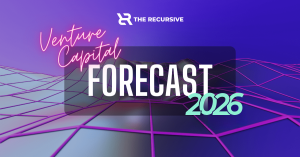The startup ecosystem is like a puzzle. There are many pieces that need to fit with one another to make a picture.
Translated to the startup world, these pieces are: founders, from students with just an idea, but a lot of passion and courage, to serial entrepreneurs, investors, from the early stage investors and business angels, to the big-check type of funds, accelerators, mentors, community builders, conferences and the list goes on. For the ecosystem to function well or the picture to be complete, all these elements are essential.
In today’s article, we want to spotlight an important component from the investor side.
With 16 years of experience in entrepreneurship and investing, Elizabeth Yin is an early-stage investor from Silicon Valley. Going through different experiences, from studying electrical engineering at Stanford, to working at Google, to founding a tech startup, to running the 500 Global Program Accelerator, to mentoring startups, she figured her strength is to support very early stage founders with knowledge and capital. So, 7 years ago, she created Hustle Fund, a fund that invests in startups in their inception phase, even before revenue.
To date, Hustle Fund invested in +800 companies globally. In addition to the fund, Elizabeth and her team have built an angel investor community, Angel Squad, with 1500 active members from 40 countries.
In this exclusive interview in collaboration with Reflect Festival, we had the opportunity to discuss with Elizabeth her strategies for investing in early projects, her views on the Central and Eastern European startup scene and her recommendations for founders.
If you want to meet Elizabeth Yin face-to-face, she will be speaking at the Reflect Festival in Limassol, Cyprus on May 30-31. Also, she will be in the jury and investor private gatherings for Reflect X, the festival’s startup competition.
About Hustle Fund
Having invested for many years and reached different continents, Hustle Fund can be considered a global support for early-stage startups.
“We have invested globally, including Western Europe and are open to look everywhere. We have an open application process and what comes our way, we look at it,”
Elizabeth explains.
The fund’s investment thesis revolves around very early-stage startups, investing between $50k and $150k, primarily in the software sector, in verticals like Enterprise SaaS, FinTech, Digital Health.
Elizabeth explains the rationale behind this focus, saying that “Software is one of the cheapest things that you can produce pretty quickly. And so, even if we’re the only investors, with our capital you should be able to certainly launch a software product and grow it to some level.”
As the fund is open to reviewing more startups, founders can get in touch or send in their application through Hustle Fund’s website.
“I am very excited about the Reflect Festival, because we generally don’t get to see a lot of companies from Central Europe. If companies in this region learn about us and are interested in applying, we would love to take a look.”
Challenges and Opportunities in Different Ecosystems
Throughout her career, Elizabeth has met with founders from different continents, including Europe. She highlighted the fact that the information on how it is to build a company differs from country to country. “As a founder, in San Francisco you can network your way into any circle and learn from people who have built billion dollar companies and you can also find out the best practices to look at online. I think in other countries this information is still very much a secret.”
This is the same even when looking at different states in the US. “If you go to small cities in the US, they have the same problem that perhaps founders in other countries have,” she adds.
However, what’s common everywhere are the problems startups have when building up. “A lot of people think that startups have different problems in different countries, but they are actually the same. Ultimately in building a business, you’re trying to figure out what problem you are solving and who is willing to pay for it. Obviously the details differ, but the overarching problem is the same,” Elizabeth observes.
Lessons and Advice for Founders
Considering the number of portfolio companies Hustle Fund has and Elizabeth’s experience, it’s no surprise that over 40k pitch decks have been analyzed.
“I would say that most pitch decks that I see at this stage are awful. Even for the companies I ended up investing in and that’s okay. I think earlier stage investors are used to bad pitch decks because it doesn’t mean it’s going to be a bad business,”
Elizabeth mentions.
Also, she makes a good point for founders when it comes to preparing the pitching materials: “I think that the best pitches I see at this stage, the founder has done a lot of work already and is talking with potential customers. Even if there’s no revenue, no sales, no contracts, nothing” and one thing to avoid:
“Some founders have submitted very long reports of nearly 100 pages. They should definitely not be doing that level of work. This is not a PhD thesis.”
But, instead of spending too much time on extensive slides, what Elizabeth and other mentors recommend is for founders to move fast, even if the product is not perfect.
“Founders end up wasting a lot of time because they don’t know what is the simplest thing they need to build for the customer. But in contrast, the savviest founders pick up the phone, make 40 calls and test something with those people manually, even without building any product. So they focus on trying to figure out what problem they will be solving and how they can actually maximize their time.”
Do You Have This Problem? You’re Not Alone
Besides being one of the first investors, Hustle Fund takes pride in also being one of the first mentors and supporters for the founder(s).
“I can typically sense what a company’s issues will be for the next three to six months just based on how they talk with me and about what is happening. An example of this is sometimes founders become overly excited when a potential customer or investor sounds excited,” Elizabeth explains.
Besides customers and investors, she observes that founders are actually facing another aspect. “I think one main issue many first time founders have is around hiring. Big companies also have that, but I think startups are even more challenged. You have no budget, not much to offer, so it really is a sales job to convince a potential employee to work with you. Most founders have never been managers before. So they themselves don’t know how to be a good manager. I certainly was a horrible manager when I first started managing people.”
If you want to meet Elizabeth Yin face-to-face, she will be speaking at the Reflect Festival in Limassol, Cyprus on May 30-31. Also, she will be in the jury and investor private gatherings for Reflect X, the festival’s startup competition.








